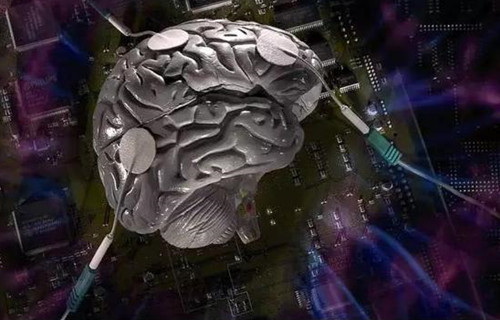如果说当今什么技术最接近科幻,那么一定是脑机接口。但是你真的了解脑机接口是什么吗?

TECHNOLOGIES are often billed as transformative. For William Kochevar, the term is justified. Mr Kochevar is paralysed below the shoulders after a cycling accident, yet has managed to feed himself by his own hand. this remarkable feat is partly thanks to electrodes, implanted in his right arm, which stimulate muscles. But the real magic lies higher up. Mr Kochevar can control his arm using the power of thought. His intention to move is reflected in neural activity in his motor cortex; these signals are detected by implants in his brain and processed into commands to activate the electrodes in his arms.
人们常用“具变革性”来宣传某种技术。对威廉.科切瓦尔(William Kochevar)来说,这个词并无夸张。一次自行车事故后,科切瓦尔自肩部以下瘫痪,但还是能自己用手吃饭。这个非凡的成就部分要归功于植入他右臂用来刺激肌肉的电极,但真正施展魔力的还在更高的部位:科切瓦尔可以用意念控制手臂。他移动手臂的意图反映在他大脑运动皮层的神经活动中,而他大脑中的植入物会探测到这些信号并将之转化成指令,激活他手臂里的电极。
An ability to decode thought in this way may sound like science fiction. But brain-computer interfaces (BCIs) like the BrainGate system used by Mr Kochevar provide evidence that mind-control can work. Researchers are able to tell what words and images people have heard and seen from neural activity alone. Information can also be encoded and used to stimulate the brain. Over 300,000 people have cochlear implants, which help them to hear by converting sound into electrical signals and sending them into the brain. Scientists have “injected” data into monkeys’ heads, instructing them to perform actions via electrical pulses.
用这种方式解码思想听起来可能像科幻小说。但是像科切瓦尔使用的“脑门”(BrainGate)系统之类的脑机接口证明思维控制的确可以实现。研究人员仅凭人们的神经活动就能知道他们听到了哪些词语、看到了哪些图像。信息还可以经编码用于刺激大脑。超过30万人已经植入了人工耳蜗,这种装置把声音转换成电信号,再将信号传入大脑,帮助人们听到声音。科学家还曾将数据“注射”到猴子的大脑里,通过电脉冲命令它们做出动作。
The pace of research into BCIs and the scale of its ambition are increasing. Both America’s armed forces and Silicon Valley are starting to focus on the brain. Facebook dreams of thought-to-text typing. Kernel, a startup, has $100m to spend on neurotechnology. Elon Musk has formed a firm called Neuralink; he thinks that, if humanity is to survive the advent of artificial intelligence, it needs an upgrade. Entrepreneurs envisage a world in which people can communicate telepathically, with each other and with machines, or acquire superhuman abilities, such as hearing at very high frequencies.
脑机接口的研究进程正在加快,并且越来越雄心勃勃。美国军方和硅谷都开始关注大脑。Facebook希望能实现“思想转文字”,让大脑直接输出文字。创业公司Kernel获得了一亿美元的融资,用于研发神经技术。伊隆.马斯克成立了一家名为Neuralink的公司,他认为人工智能出现后,人类如果还想生存下去,就需要升级。在企业家们设想的世界中,人们可以通过心灵感应与他人或机器交流,或是获得超人般的能力,比如能听到非常高频的声音。
These powers, if they ever materialise, are decades away. But well before then, BCIs could open the door to remarkable new applications. Imagine stimulating the visual cortex to help the blind, forging new neural connections in stroke victims or monitoring the brain for signs of depression. By turning the firing of neurons into a resource to be harnessed, BCIs may change the idea of what it means to be human.
这些能力即便真能实现,也要到几十年后。但在那之前,脑机接口或许会打开通往非凡新应用的大门。想象一下,人类或许可以通过刺激视觉皮层来帮助盲人视物,为中风患者建立新的神经连接,或是监控大脑是否有抑郁症的迹象。脑机接口将神经元放电转化为一种可利用的资源,在此过程中或许会改变对人的定义。







